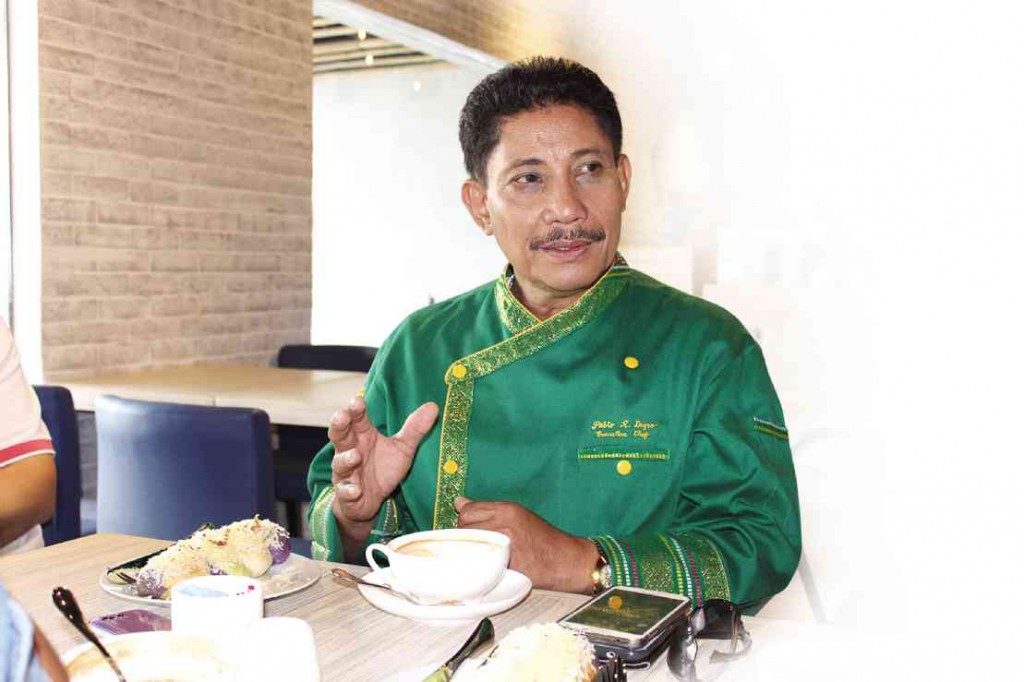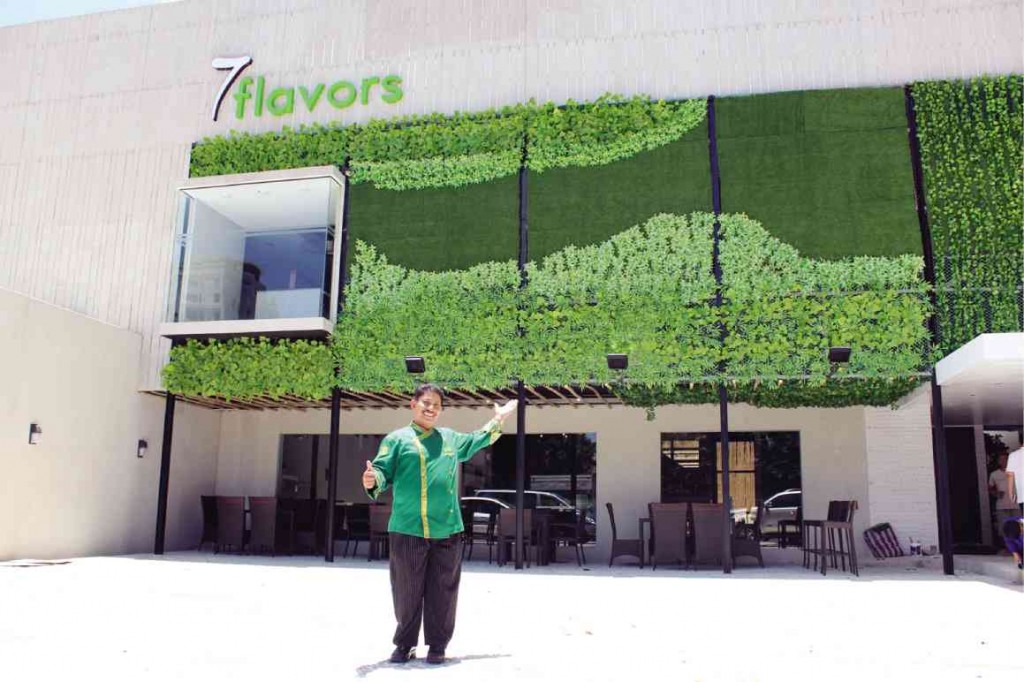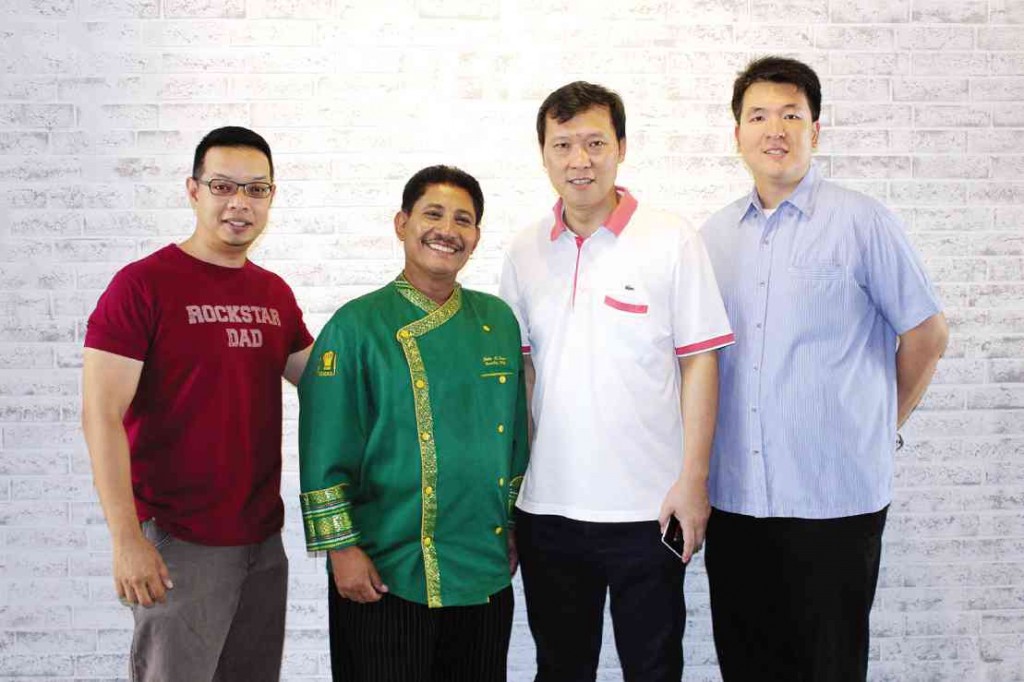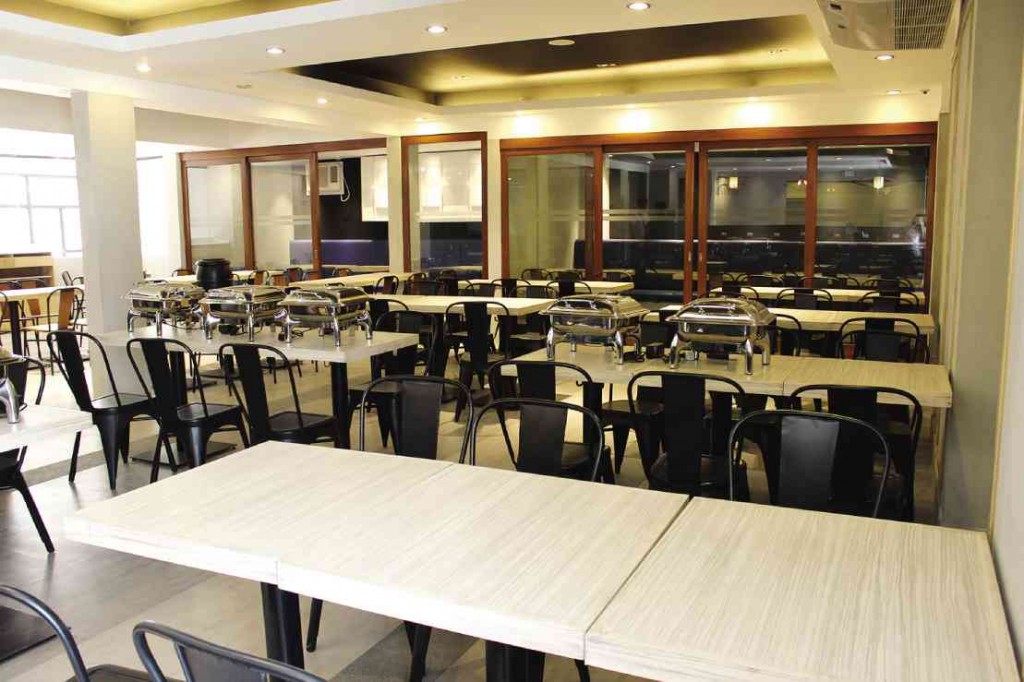Boy Logro invests skills, reputation in ventures
Boy Logro had close to nothing of monetary value in the 1970s. But now, the name alone is worth its weight in capital.
For any establishment that carries the name, it becomes a mark of credibility, the chef known all over the country by that screen name said, just after posing beside his photo at the entrance of 7 Flavors in San Juan City.
“After years and years of hard work, and take note that I will be a senior citizen soon,” the humorous Logro said, “the name is working for me, even if I pronounce kitchen as ‘kitsin.’”
“People consider me a celebrity now,” he noted. “Whenever I go out, I now have to do a quick retouch. Stars like Donita Rose and Gladys Reyes always remind me that I am now a public figure.”
And he turned into a public figure that people want their kitchen associated with, noted his 7 Flavors co-owners, Karlo Aquino, Kenneth Hung and Jeremy Sy.
“In the industry, some partners have the money, connections, and you could have skills and the reputation,” Logro explained.
The name and the person are both unassuming, but the impressive back story—from a cleaner in Manila to the first Filipino executive chef of a five-star hotel—found its place on the television screen, as a constant source of awe and inspiration.
“When Regine Velasquez and I taped in Liliw, Laguna, recently, more people were taking pictures with me than her,” he noted. “People were intimidated by her, but not with me. They had no problem saying: Pa-picture po, Chef.”
Logro stood only briefly in front of the facade of the new restaurant at 196 A. Mabini St., Addition Hills, but people from students to office workers were stopping by to take “groupfies” with him.
He did not hesitate, and even said thanks to the people who swarmed him, the same way he said thanks to the waiter every time he was served new entrees during lunch.
Logro noted that he owns or co-owns eight businesses, including a Metro Manila culinary institute Sy and he established in end-2012 for people who could not travel to GMA, Cavite, where Logro put up his first school.
He harked back to the beginnings of that school as he narrated what is already a saga for the the masa—one man who was a house help, then a janitor, an apprentice and then a household name.
“P500,000. That was my initial investment in the Cavite school in 1998,” he said. “I also borrowed P200,000 from the Diamond Hotel cooperative. Then, every payday, construction would resume.”
His wife would work with one or two masons, “because we didn’t even have money to hire an architect,” Logro recounted. “Investment went from
P500,000 to P700,000 to P1 million. You were seeing your loans mounting into a building so it wasn’t like gambling,” he said.
The school, however, has remained an unfinished project, he said. Enrollment has grown from an initial four to over a hundred, many of whom poor, so facilities had to be built.
“I want to help the poor,” he noted.
Still with that goal, he built a new school, on a Davao lot his wife had bought with his savings as personal chef to the King of Oman in the 1980s. The school now offers courses in cooperation with the Technical Education and Skills Development Authority, for whom he is ambassador.
Maybe a hotel could be a good addition to his enterprises, he said. He also revealed that before retiring, “he wants to build the first culinary university in the Philippines, where people can earn degrees and be as skilled as, say, the French.”
Every six months, Logro picks one or two scholars who will take a course for free. They only need to help clean the school.
Practicality and innovation are reasons none of his business ventures have folded, Logro said. Aside from schools and restaurants, he owns a farm in Davao and a water refilling station, even without formal training in entrepreneurship.
“I just apply my experience, how to be able to set up a business that is not necessarily big but has some impact,” he noted. “I didn’t dream to get rich immediately. I just wanted sustainable businesses, where I could delegate work to trusted employees and just pay them a visit.”
The 7 Flavors restaurant is an example. Aside from the research and development he poured into the menu of 7 Flavors—which integrates as many as possible of the flavors sweet, sour, salty, bitter, umami, spicy and astringent—he also trained the three main chefs.
“Innovation, imagination must continue,” he said, “You have to compare yourself against the others and always ask how you can innovate. You can’t set a boundary.”
A sumptuous example would be the 7 Flavors cheesecake, complemented by durian and coconut; and the colorful ensaymada that has all seven flavors, with pandan, butter, cheese, bacon and custard, among others.
Logro has a push-and-pull mechanism in this principle, however. He can be fearless, but he also makes sure to green-light only products that are, like his brand, reachable or relevant.
The new restaurant, for one, has a gourmet cafe and an artisan bakery with affordable offerings, and a buffet, which is a natural hit among Filipinos today. It also does not serve sodas, a nod to the health-consciousness trend.
None of these ideas are hard to come up with when you enjoy what you do, Logro said. And he so enjoyed it that all his children were attracted to the hospitality industry, three becoming chefs and one taking the hotel-and-restaurant-management track.
How does he stay as enthusiastic about business as when he says his signature “yumyumyum”?
“I set targets by the day. In six years on television, every day has been another experience, surprise,” he said. “ I believe I did not get it all in one go because people could drown in their money, their success. Success is better ladderized: first a school, then a show, etc.”
With great opposition from a producer and only an experiment with a dark-skinned probinsiyano, whose highest educational attainment was an elementary diploma, Logro was surprisingly a ratings magnet, and turned from a guest into a co-host and eventually the host of the longest-running cooking program in the country.
“I guess they ran out of chefs who were fluent in English,” he recounted, with a laugh. Then he went on to say that his school had also been dismissed by naysayers as a failure in the making.
“I just don’t let all the negative comments get to me. They can call me poor, ugly, all sorts of insults, I will ignore them,” he said.
“I’m really proud to say that it is how people know me, sa mali-mali, because if I were perfect, no one would,” he concluded.
At least he can speak Spanish, Nihongo and Arabic, aside from carabao English, and has, ultimately, a name that sells.
Catch Chef Boy Logro on “Idol sa Kusina,” which airs Sundays, 7:15 p.m., on GMA News TV.




